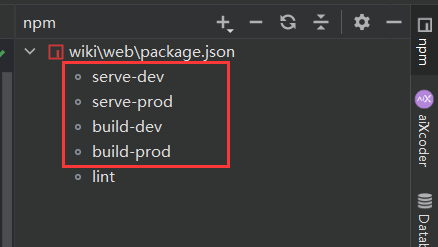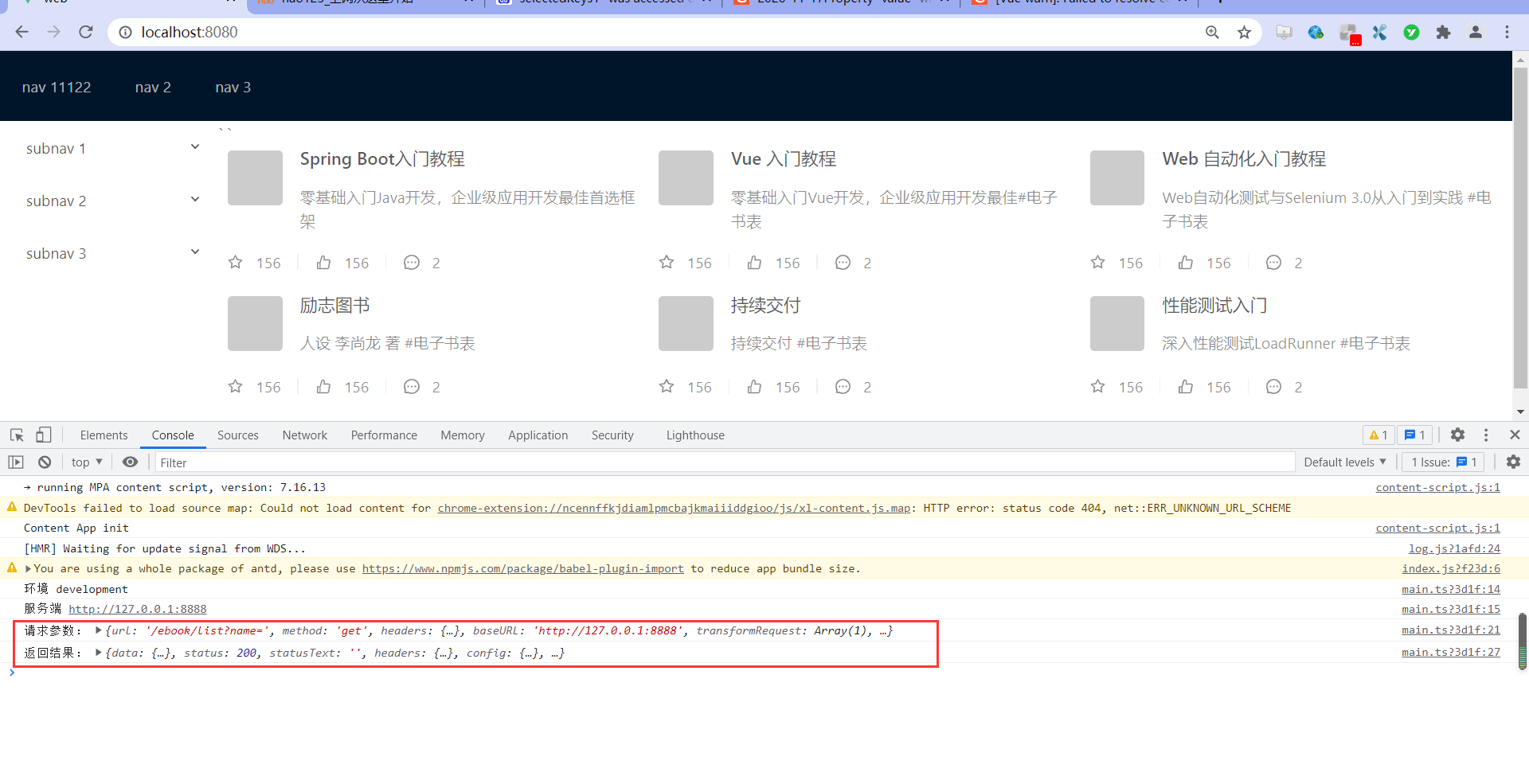目录
- 1.安装代理模块
- 2.配置代理
1.安装代理模块
cnpm i http-proxy-middleware -S
2.配置代理
const express = require('express');
const app = express();
/* 代理配置 start */
const proxy = require('http-proxy-middleware'); //引入代理模块
const proxyOptions = {
target: 'http://127.0.0.1:9999', //后端服务器地址
changeOrigin: true //处理跨域
};
const exampleProxy = proxy('/api/*', proxyOptions); //api前缀的请求都走代理
app.use(exampleProxy);
/* 代理配置 end */
const hostName = '127.0.0.1';
const port = 8080;
app.get('/', function(req, res) {
const html =
`<!DOCTYPE html>
<html lang="en">
<head>
<meta charset="UTF-8" />
<meta name="viewport" content="width=device-width, initial-scale=1.0" />
<meta http-equiv="X-UA-Compatible" content="ie=edge" />
<title>Document</title>
</head>
<body>
<button id="btn1">请求服务器接口1</button>
<button id="btn2">请求服务器接口2</button>
<script src="https://cdn.bootcss.com/axios/0.19.0/axios.min.js"></script>
<script>
document.getElementById('btn1').addEventListener(
'click',
() => {
axios.get('/api/hello', {
params: {
key: 'hello'
}
});
},
false
);
document.getElementById('btn2').addEventListener(
'click',
() => {
axios.get('/api/word', {
params: {
key: 'word'
}
});
},
false
);
</script>
</body>
</html>`;
res.setHeader('Content-Type', 'text/html');
res.send(html);
});
app.listen(port, hostName, function() {
console.log(`服务器运行在http://${hostName}:${port}`);
});
到此这篇关于Node中使用http-proxy-middleware实现代理跨域的方法步骤的文章就介绍到这了,更多相关Node http-proxy-middleware代理跨域内容请搜索NICE源码以前的文章或继续浏览下面的相关文章希望大家以后多多支持NICE源码!












